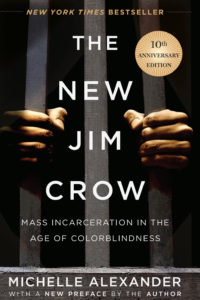Anti-Racism Resources
Books
Alexander, Michelle. The New Jim Crow: Mass Incarceration in the Age of Colorblindness. Tenth Anniversary Edition. New York: New Press, 2010.
Anderson, Carol. White Rage: The Unspoken Truth of Our Racial Divide. New York: Bloomsbury, 2016.
Banaji, Mahzarin R. and Greewald, Anthony G. Blind Spot: Hidden Biases of Good People. New York: Bantam Books, 2013.
Bonilla-Silva, Eduardo. Racism Without Racists: Color-Blind Racism and the Persistence of Racial Inequality in America. 4th ed. Lanham, MD: Rowman & Littlefield, 2013. First published 2003.
Coates, Ta-Nehisi. Between the World and Me. New York: Spiegel & Grau, 2015.
Desmond, Matthew. Evicted: Poverty and Profit in the American City. New York: Broadway Books, 2016.
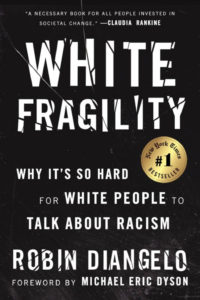 DiAngelo, Robin. White Fragility: Why Its So Hard for White People to Talk about Racism. Boston: Beacon Press, 2018.
DiAngelo, Robin. White Fragility: Why Its So Hard for White People to Talk about Racism. Boston: Beacon Press, 2018.
Dyson, Michael Eric. Tears We Cannot Stop: A Sermon to a White America. New York: St. Martin’s Press, 2017.
Feagin, Joe R. The White Racial Frame: Centuries of Racial Framing and Counter-Framing. New York: Routledge, 2013.
Gaskins, Pearl Fuyo, ed. What Are You? Voices of Mixed-Race Young People. New York: Henry Holt & Co., 1999.
Gyasi, Yaa. Homegoing. New York: Alfred A. Knopf, 2016.
Irving, Debby. Waking Up White: And Finding Myself in the Story of Race. Boston: Elephant Room Press, 2014. 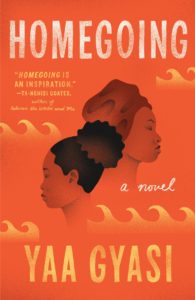
Kendi, Ibram X. How to Be an Anti-Racist. New York: One World, 2019.
Kendi, Ibram X. Stamped from the Beginning. New York: Nation Books, 2016.
Lee, Stacey. Unraveling the “Model-Minority” Stereotype: Listening to Asian American Youth. New York: Teachers College Press, 1996.
Lee, Stacey. Up Against Whiteness: Race, School, and Immigrant Youth. New York: Teachers College Press, 2005.
Loewen, James W. Lies My Teacher Told Me: Everything Your American History Textbook Got Wrong. rev. ed. New York: New Press, 2018.
Menakem, Resmaa. My Grandmother’s Hands: Racialized Trauma and the Pathway to Mending Our Hearts and Bodies. Las Vegas: Central Recovery Press, 2017.
Mills, Charles W. The Racial Contract. Ithaca, NY: Cornell University Press, 1997.
Moore, Eddie, Ali Michael, and Marguerite W. Penick-Parks. The Guide for White Women Who Teach Black Boys. Thousand Oaks, CA: Corwin, 2017. 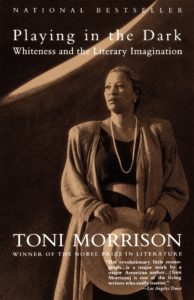
Moraga, Cherrie, and Gloria Andzaldua, eds. This Bridge Called My Back: Writings by Radical Women of Color. New York: State University of New York Press, 2015.
Morrison, Toni. Playing in the Dark: Whiteness and the Literary Imagination. New York: Random House, 1992.
Oluo, Ijeoma. So You Want to Talk About Race. Berkeley, CA: Seal Press, 2018.
Powell, John A. Racing to Justice: Transforming Our Conceptions of Self and Other to Build an Inclusive Society. Bloomington, IN: Indiana University Press, 2012.
Rothstein, Richard. The Color of Law: A Forgotten History of How Our Government Segregated America. New York: Liveright, 2017.
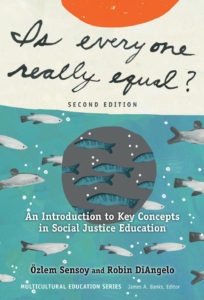 Saad, Layla F. Me and White Supremacy: Combat Racism, Change the World, and Become a Good Ancestor. Naperville, IL: Sourcebooks, 2020.
Saad, Layla F. Me and White Supremacy: Combat Racism, Change the World, and Become a Good Ancestor. Naperville, IL: Sourcebooks, 2020.
Sensoy, Özlem, and Robin DiAngelo. Is Everyone Really Equal? An Introduction to Key Concepts in Critical Social Justice Education. 2nd ed. New York: Teachers College Press, 2017.
Singleton, Glenn. Courageous Conversations About Race: A Field Guide for Achieving Equity in Schools. 2nd ed. Thousand Oaks, CA: Corwin, 2014.
Tatum, Beverly. Why Are All the Black Kids Sitting Together in the Cafeteria: And Other Conversations About Race. Twentieth anniv. rev. ed. New York: Basic Books, 2017.
Trepagnier, Barbara. Silent Racism: How Well-Meaning White People Perpetual the Racial Divide. New York: Routledge, 2016. First published in 2010.
Van Ausdale, Debra, and Joe R. Feagin. The First R: How Children Learn Race and Racism. Lanham, MD: Rowman & Littlefield, 2001.
Wise, Tim. White Like Me: Reflections on Race from a Privileged Son. Berkeley, CA: Soft Skull Press/Counterpoint, 2010.
Movies / Film / Video
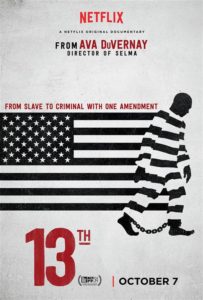 13th. Ava DuVernay, dir. Netflix, 2016.
13th. Ava DuVernay, dir. Netflix, 2016.
Burden. Andrew Heckler, wri. and dir. Unburdened Entertainment, 2018.
A Class Divided. William Peters, dir. and prod. Yale University Films for Frontline, PBS. WGBH Education Foundation, 1985.
Chisholm ’72: Unbought and Unbossed. Shola Lynch, dir. and prod. R.E.A.L.side, 2004.
The Color of Fear. Stirfry Seminars, 1994 .
Cracking the Codes: The System of Racial Inequity. World Trust, 2013.
In Whose Honor? Jay Rosenstein, dir. On POV (PBS), premiered July 15, 1997.
Just Mercy. Destin Daniel Cretton, dir. Warner Brothers, 2019.
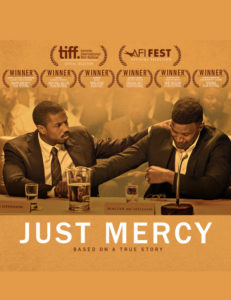 Lissah Hundley – Corporate Diversity Officer
Lissah Hundley – Corporate Diversity Officer
Mirrors of Privilege: Making Whiteness Visible. World Trust, 2007.
Race: The Power of an Illusion. Larry Adelman, exec. prod. San Francisco: California Newsreel, 2003.
Reel Bad Arabs. Jeremy Earp, dir. Media Education Foundation, 2006.
The Revisionaries. Scott Thurman, dir. Making History Productions, 2012.
“Uncomfortable Conversations with a Black Man” with former NFL player Emmanuel Acho.
Articles
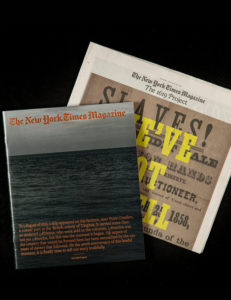 Cadet, Danielle. “Your Black Colleagues May Look Like They’re Okay. Chances Are, They’re Not.” Refinery29, Unbothered, May 28, 2020.
Cadet, Danielle. “Your Black Colleagues May Look Like They’re Okay. Chances Are, They’re Not.” Refinery29, Unbothered, May 28, 2020.
Coates, Ta-Nehisi. “The Case for Reparations.” The Atlantic, June 2014.
Hannah-Jones, Nikole (ed.). “The 1619 Project.” New York Times Magazine, 2019.
Kaba, Mariame. “Yes, We Mean Literally Abolish the Police.” The New York Times Op-Ed, June 12, 2020.
Kamenetz, Anya. “Resources for Educators to Use in the Wake of Charlottesville.” NPR, August 14, 2017.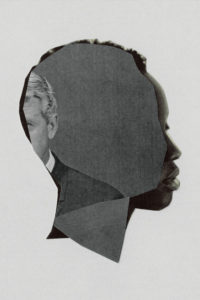
Nichols, Hedreich. “A Guide to Equity and Antiracism for Educators.” Edutopia, June 5, 2020.
Rankine, Claudia. I Wanted to Know What White Men Thought About Their Privilege. So I Asked. The New York Times, July 17, 2019.
Shaheen, Jack G. “Reel Bad Arabs: How Hollywood Vilifies a People.” Annals of the American Academy of Political and Social Science 588, no. 1 (2003).
Sunshine Behavioral Health. “Mental Health Issues Facing the Black Community”
Black Mental Health Resources
Here are some free or low-cost sources for mental health treatment of the Black community:
AAKOMA Project. Arlington, Virginia-based but serving the Northern Virginia and Washington D.C. area, offering up to three free virtual mental health sessions for “young people.”
Black Men Heal. Limited and selective (no guarantees) free mental health service opportunities following a waiting period.
Boris Lawrence Henson Foundation. To help Black Americans with “life-changing stressors and anxiety” receive mental health services, the organization’s Free Virtual Therapy Support Campaign pays for up to five individual sessions — first come, first served — “until all funds are committed or exhausted.”
Henry Health. Culturally sensitive self-care support and teletherapy for Black men and their families. “The first out-of-pocket session is on us.”
Inclusive Therapists. With a directory of therapists offering reduced-fee teletherapy.
Family Paths. “Mental health and supportive services to low-income, multi-stressed individuals and families” in Alameda County, Calif.
The Loveland Foundation. Financial assistance is sometimes available for between four and eight sessions for Black women and girls.
National Queer and Trans Therapists of Color Network. A directory of mental health practitioners working in agencies, community-based clinics, and private practice. Also, a mental health fund that provides financial assistance to queer and trans people of color by queer and trans people of color.
Open Path Collective. A nonprofit that for a one-time membership fee provides inexpensive in-network therapy, online and in-person.
Talkspace. Live video psychiatry sessions, plus a free therapist-led racial trauma support group, and financial assistance for the Black community.
Therapy for Black Men. Free therapy sessions for Black men are in the planning stages. You can sign up to be notifications when they become available.
Zencare. Provides a list of Black therapists — primarily in Boston, New York City, and Rhode Island — some of whom “offer a sliding scale, lower fees, or out-of-network reimbursement for individuals who cannot otherwise afford to pay for therapy.”
Here are some sources for culturally competent mental health providers:
Association of Black Psychologists
Black Emotional and Mental Health Collective (BEAM).
Black Male Therapists Directory Provided by Black Female Therapists.
Black Mental Wellness. Apps, podcasts, videos.
Black Virtual Wellness Directory Provided by the Black Mental Health Alliance.
Brother, You’re on My Mind. Provides educational materials on mental health issues affecting black men, particularly Omega Psi Phi Fraternity members, with an online toolkit.
InnoPsych. Resources to find a therapist of color.
LGBTQ Psychotherapists of Color Directory.
Melanin and Mental Health. Directory of “Dope Therapists.”
Ourselves Black. Directory of providers, plus a podcast, online magazine, and online discussion groups.
Sista Afya Community Mental Wellness. Chicago-area organization providing sliding-scale rates for mental health treatment for Black women.
Therapy for Black Girls. “An online space dedicated to encouraging the mental wellness of Black women and girls,” with a therapist locator, in-office and virtual, plus a blog, podcast, and online community.
Therapy for Queer People of Color. Therapist directory.
Sources
nami.org – NAMI’s Statement on Recent Racist Incidents and Mental Health Resources for African Americans
pbs.org – How the stress of racism can harm your health—and what that has to do with Covid-19
npr.org – What Do Coronavirus Racial Disparities Look Like State by State?
npr.org – CDC Employees Call Out Agency’s ‘Toxic Culture of Racial Aggressions’
rollcall.com – Virus forebodes a mental health crisis
nami.org – Who We Are
columbiapsychiatry.org – Addressing Mental Health in the Black Community
washingtonpost.com– Giuliani Falsely Claims That Black People Kill More Police Than Vice Versa
cnn.com – Black communities account for disproportionate number of COVID-19 deaths in the US, study finds
news.umich.edu – Police: Sixth-leading cause of death for young Black men
channel4.com – Do black Americans commit more crime?
bostonglobe.com – The statistical paradox of police killings
bjs.gov – Contacts Between Police and the Public, 2015
nami.org – Black/African American
mayoclinic.org – Mood disorders
books.google.com – Say It Loud! I’m Black and I’m Depressed
nimh.nih.gov – Chronic Illness & Mental Health
webmd.com – Types of Depression
columbiadoctors.org – Anxiety Disorders
webmd.com– Anxiety Disorders
vice.com – Is Anxiety a White-People Thing?
pnas.org – Risk of being killed by police use of force in the United States by age, race-ethnicity, and sex
mcleanhospital.org – Trauma and Dissociative Disorders Treatment
huffpost.com– This Is What Racial Trauma Does to the Body And Brain
dartmouth.edu – Dual Diagnosis: Mental Illness and Substance Abuse
samhsa.gov – 2018 National Survey on Drug Use and Health: African Americans
webmd.com – Types of Mental Illness
samhsa.gov – 2018 NSDUH Detailed Tables
health.state.mn.us – Legacy of Trauma: Context of the African American Existence
kff.org – Changes in Health Coverage by Race and Ethnicity Since the ACA, 2010-2018
usatoday.com – ‘We’re losing our kids’: Black youth suicide rate rising far faster than for whites; coronavirus, police violence deepen trauma
mhanational.org – Depression in Black Americans
abpsi.org – The Association of Black Psychologists – Therapist Resource Directory
yahoo.com – Woman who woke up from surgery with hair braided by doctor makes the case for more Black physicians: ‘It can save lives’
ncbi.nlm.nih.gov– Mental Health Care for African Americans (Chapter 3: Mental Health: Culture, Race, and Ethnicity: A Supplement to Mental Health: A Report of the Surgeon General)
Podcasts
Biewen, John. Seeing White. Podcast bibliography. Center for Documentary Studies, Duke University, 2015.
Websites & Blogs
Financial Literacy in the Black Community – Annuity.org
Antiracist Research and Policy Center – American University.
Flicker, Sarah Sophie and Klein, Alyssa. “Antiracist Resources for White People.”
Rachel Cargle – Public academic, writer, and lecturer
Raising Race Conscious Children
Pulitzer Center. “The 1619 Project Curriculum.”
